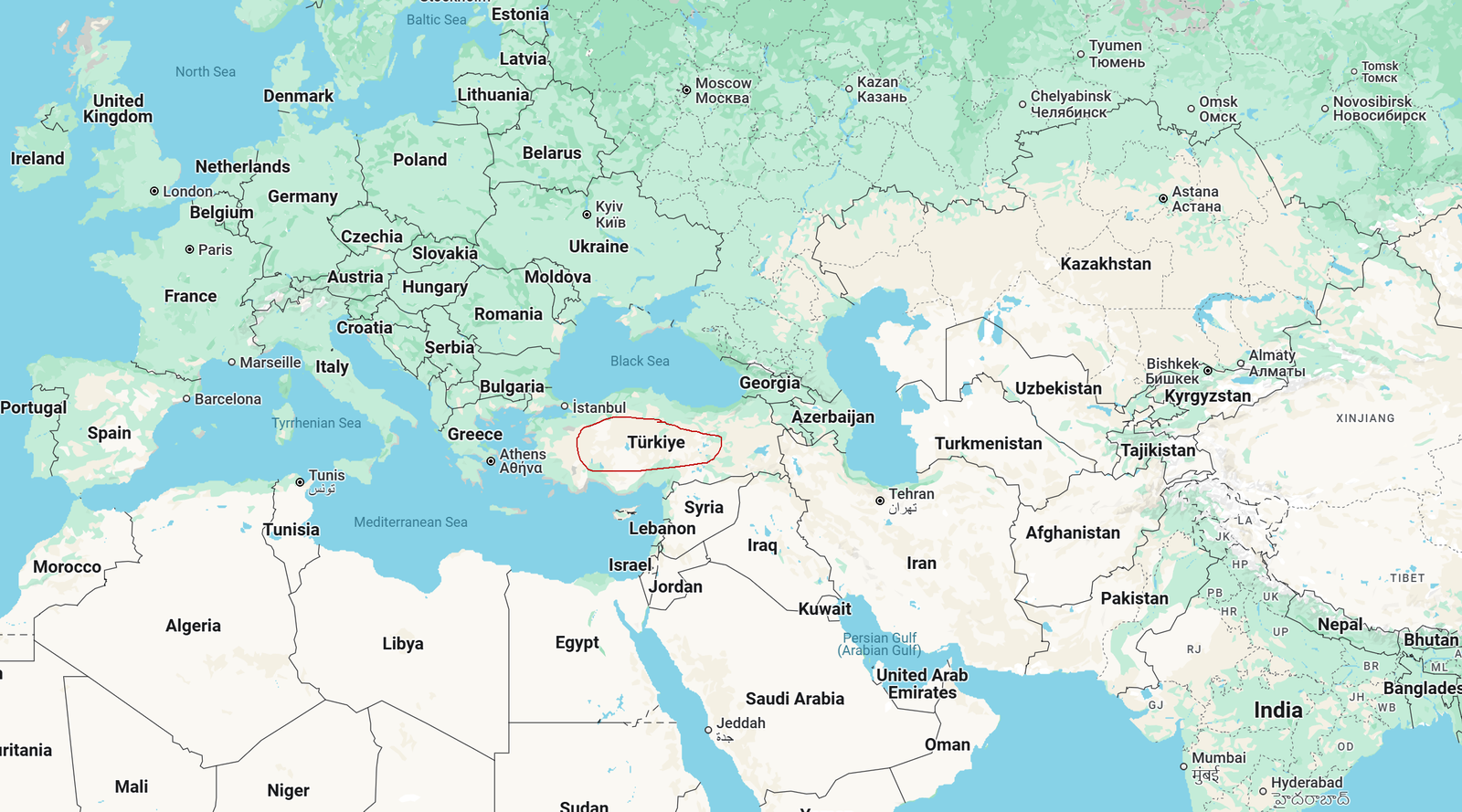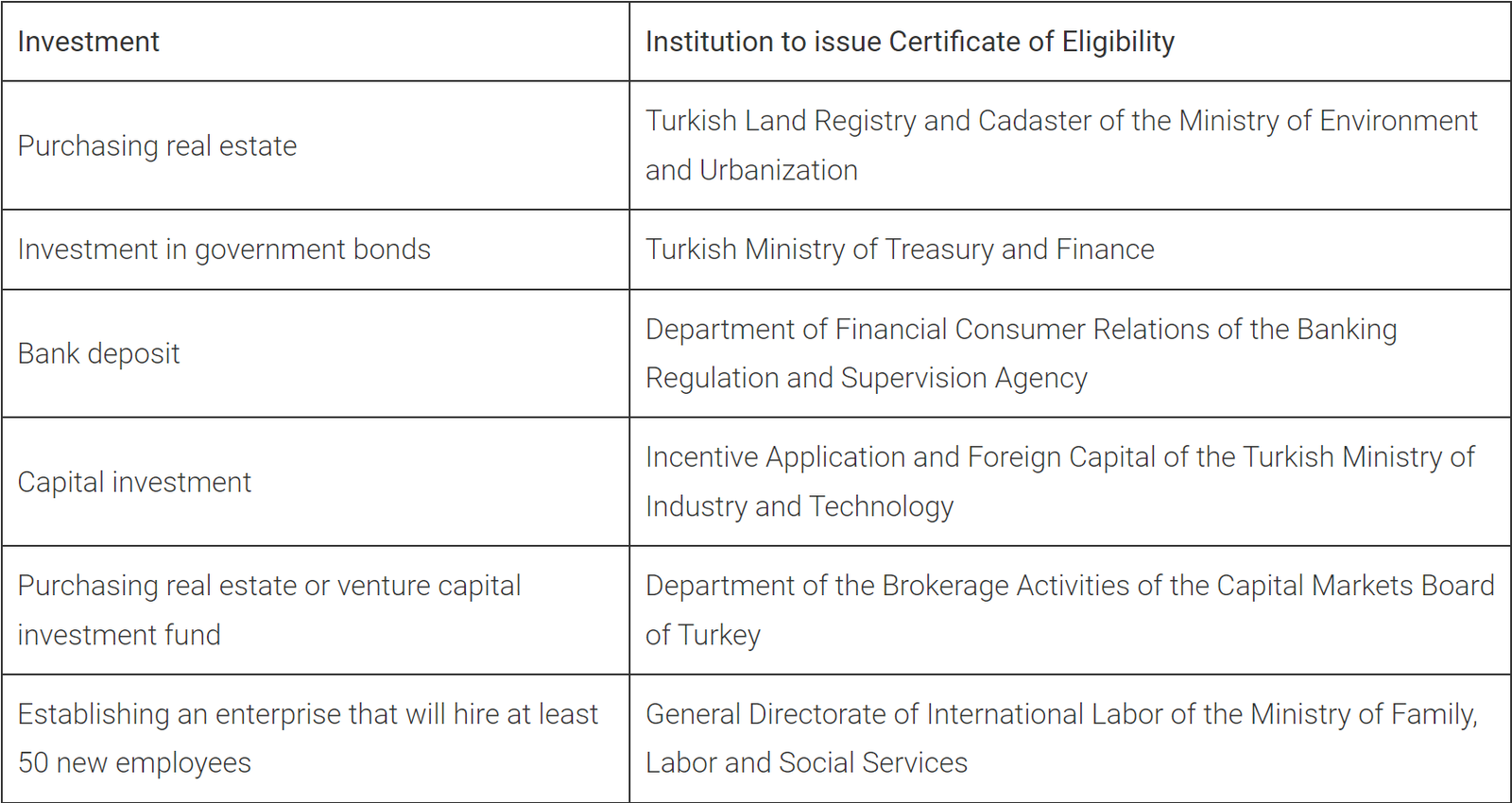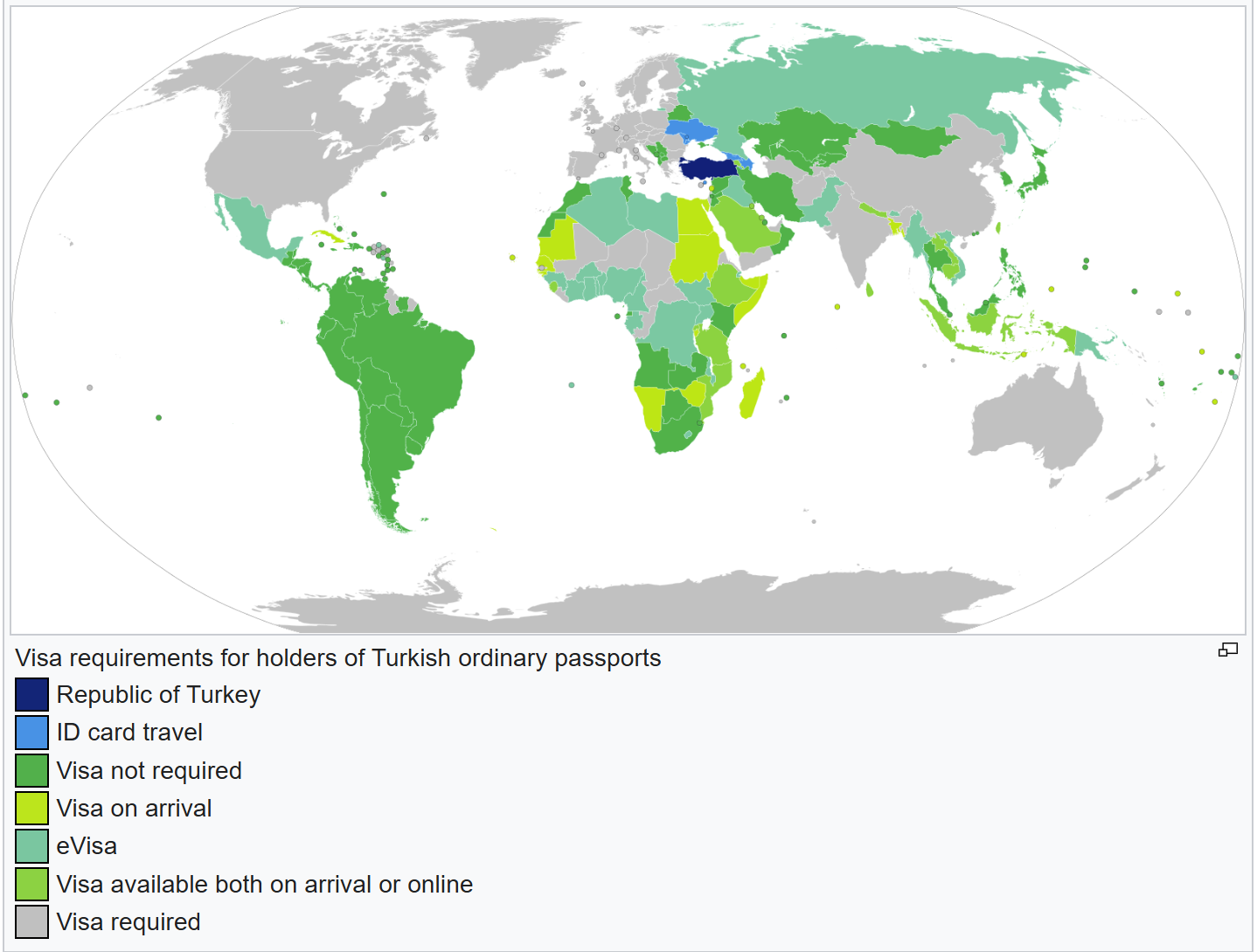How To Get Residency in Turkey | An Incomplete Guide
Capital: Ankara
Largest City: Istanbul
Population: 85,664,944 (2024, 18th)
Ethnic Groups: 70–75% Turks, 19% Kurds
Area: 783,562 km2 (36th)
Offical Language: Turkish
Currency: Turkish lira (As of May 19, 2025, 1 Lira = 0.026 USD)
GDP per Captial: $43,921 (2024, 46th)
Human Development Index: 0.853 (51th)

Country Profile:
Turkey is a transcontinental country located mainly on the Anatolian Peninsula in Western Asia, with a smaller portion on the Balkan Peninsula in Southeastern Europe. It’s known for its rich cultural heritage, blending influences from ancient Greek, Persian, Roman, Byzantine, and Ottoman empires.
As a regional geographical power, Turkey is the nineteenth largest economy in the world, but it also faces uncertainties brought by factors such as high inflation, soaring external debt, currency depreciation, and political instability.
Visa & Immigration System:
In a bid to stimulate foreign investment and ease internal economic difficulties in 2016, Turkey instituted a fast-track citizenship program, under which investors could secure a passport by purchasing real estate valued at $250,000( now $400,000). This initiative rapidly gained global popularity, ranking among the most sought-after citizenship-by-investment schemes. Since its full implementation in 2018, the program has successfully drawn in over 13,000 investors along with their family members.
In addition to passport program, foreigners can also legally reside in Turkey by applying for various types of Turkish residence permits.
Citizenship By Investment Program:
Eligibility Criteria:
A foreign investor can be awarded a Turkish passport upon securing approval from the Turkish President if they meet any one of the following seven criteria:
1. Purchase of property or a combination of properties worth at least $400,000 and held for no less than 3 years (the net value of the property, not the purchase price, is used in the application process, which is based on the valuation provided by the Turkish assessment agency). Transaction tax is 3% of the property price.
2. Investment of at least $500,000 in a fixed asset portfolio.
3. Deposit of at least $500,000 in a Turkish local bank for more than 3 years.
4. Purchase of government bonds worth at least $500,000 and held for more than 3 years.
5. Purchase of at least $500,000 worth of investment fund shares (real estate investment fund or venture capital fund) and held for more than 3 years.
6. Investment of at least $500,000 in the Turkish pension system.
7. Setting up a business in Turkey that is recognized by the local Family, Labor, and Social Services Bureau, and creating at least 50 job opportunities.
Beyond financial prerequisites, Turkish passport issuance criteria for applicants are quite lenient: applicants must be at least 18 years old, possess no criminal record (although official documentation requires this, it is seldom enforced during the actual application review), and meet government stipulated investment conditions.
Application Process:
The basic process for obtaining a Turkish passport involves the following steps:
1. Prepare for investment: You need to first decide on which investment route to choose, prepare transferable funds, apply for a Turkish tax number, and open a local bank account. If you are not very familiar with the process and Turkish economy, it is better to ask for assistance from a professional intermediary agency.
2. Apply for investment approval from Turkish government: Different investment options require approval from different government departments. The table showing the approval departments for each investment option was referenced:

3. Complete Investment: After obtaining investment approval, you need to apply for a residence permit at the local Turkish immigration office to complete investment in Turkey. In theory, the residence permit application must be made within Turkey, but many agencies can help investors apply without entering Turkey.
4. Submit citizenship application: After completing investment, the citizenship application is first submitted to the Interior Ministry’s Population and Citizenship Department, then forwarded to the Directorate General of Civil Registration and Citizenship Affairs (NVIGM), which conducts a thorough background check on the main and dependent applicants.
Required documents for this process include:
Personal information documents: passports of all applicants, passport-sized photos, birth certificates, marriage certificates, and proof of relationship between main and dependent applicants.
Documents proving eligibility for the passport program: certificates showing no illegal stay in Turkey, no criminal record, and health insurance covering Turkey.
Turkish tax number: each applicant must obtain a tax number when investing in Turkey.
Proof of completed investment.
5. Get Citizenship: After passing investigation, the Interior Ministry submits your citizenship application to the country’s Presidentfor approval. This step is basically a formality.
Currently, the approval process for a Turkish passport typically takes about six months and is very lenient; basically, once your investment is completed, the passport approval is granted.
Dependents:
Turkish passport program allows the main applicant’s spouse, children under 18 years old, and children over 18 with mental or physical disabilities to apply for citizenship together.
It should be noted that if eligible dependents do not submit their immigration applications simultaneously with the main applicant, they cannot later acquire citizenship through this route and must apply for Turkish citizenship independently.
Turkey Residence Permits:
Apart from passport program, foreigners can also legally reside in Turkey by applying for various types of Turkish residence permit ID cards.
Turkish residence permits are issued to foreigners who wish to live long-term, travel, work, or invest in Turkey. Children of visa holders enjoy the same educational rights as Turkish citizens. The main types of Turkish residence permits include:
Tourist residence permit: Valid for 1 to 2 years per issuance, with no residence requirements.
Business residence permit: Valid for only 3 months per issuance, also with no residence requirements.
Medical residence permit: Issued to foreigners receiving medical treatment in Turkey.
Property residence permit: Issued to foreigners who purchase any value of real estate in Turkey. In fact, applicants for passport program first obtain a property residence permit before getting the passport. This permit can be renewed continuously as long as the investment is maintained.
Student residence permit: Issued to foreign students studying in Turkey, generally valid until six months after graduation.
Foreigners can also legally work and live in Turkey by applying for a work permit, which requires a job contract from a Turkish company and an online application. Applicants must submit materials from abroad and enter Turkey only after the permit is approved. Work permits are generally valid for one year initially and can be renewed every two years based on the employment contract.
Basic prerequisites for issuing these residence permits are that applicants must be healthy, adults, have no criminal record, and possess sufficient financial means.
Regarding financial requirements, Turkish government does not specify a clear minimum financial threshold; approval depends on the visa officer and the applicant’s background.
To apply for these long-term residence permits, applicants must apply online via the e-ikamet system. After approval, Turkish immigration system provides an appointment date, on which the applicant must submit relevant documents in Turkey, including passport, photos, local property lease documents, application fees, etc. The entire process usually takes 3 to 6 weeks.
Taxation:
Turkey’s tax system mainly consists of three categories: income tax, consumption tax, and property tax, with a total of 14 major tax types.
The country applies a progressive tax rate system for personal income tax, with rates generally ranging from 15% to 40%. Standard corporate tax rate is 20%.
Value-added tax (VAT) rates are divided into four brackets: 1%, 8%, 18%, and zero rate, applicable to different goods and services. Property tax rates range between 0.1% and 0.6%.
Permanent Residency & Citizenship:
Foreigners who have legally and continuously resided in Turkey for 8 years can apply for permanent residence.
Foreigners who have legally and continuously resided in Turkey for 5 years (only 3 years if married to a Turkish citizen) and intend to stay long-term may apply for naturalization to obtain Turkish citizenship, provided they meet basic conditions such as embracing Turkish values, having stable and sufficient income, and good character.
Turkey, like Argentina, is one of the few countries in the world where the residency requirement for permanent residence is longer than that for citizenship.
Passport Power:
Turkey recognizes dual citizenship, and its passport ranks 48th globally. Holders of Turkish passports can enjoy visa-free or visa-on-arrival access to 114 countries and regions worldwide. (May 19, 2025)

Moreover, Turkey is a participant in the E2 treaty with the United States. Holding a Turkish passport provides individuals with the chance to potentially establish residency in the United States through the E2 treaty.
Useful Links:
Turkey investment office official website:https://www.invest.gov.tr/en/pages/home-page.aspx
Turkey residency permit online platform: https://e-ikamet.goc.gov.tr/66